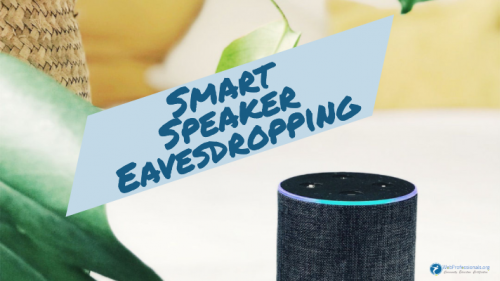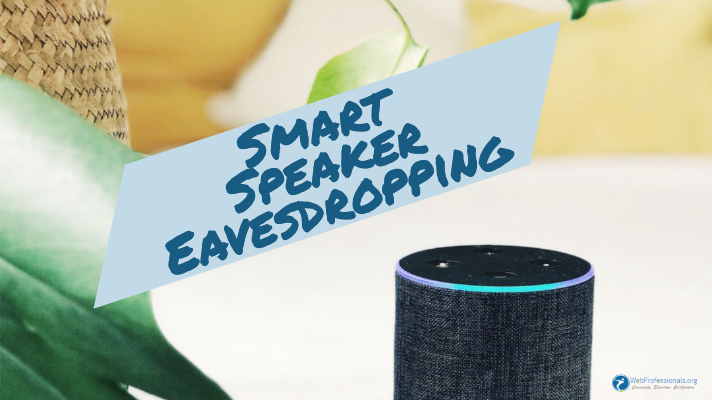Perhaps you have one of those Alexa or Google Home devices (or are considering one). Ever wonder how it becomes active when you speak the “magic words” such as “Alexa?” Obviously, it is listening in order to know when you ask it something. These devices are just part of the connected Internet of Things (IoT) we encounter more and more in our daily lives. But, you do realize these smart speakers are eavesdropping all the time?

Sure, you can “opt out” of this listening. But you have to take an active role to do so. In some states, legislation is being considered to require companies (such as Amazon and Google) to obtain explicit consent from customers before those voice queries are recorded and stored.
Illinois has proposed legislation
In Illinois (where Web Professionals is headquartered), our State Senate passed the Keep Internet Devices Safe Act in the Senate on April 10. The measure is now before the Rules Committee in the Illinois House. In a nutshell, this legislation (if it becomes law) directs that the user must first agree (in writing) to specified criteria. The exact wording – “Provides that no private entity may turn on or enable, cause to be turned on or enabled, or otherwise use a digital device’s microphone to listen for or collect information, including spoken words or other audible or inaudible sounds, unless a user first agrees to a written policy meeting specified criteria.”
California has proposed legislation
In California similar legislation was proposed earlier this year (February 22). This is also making its way through the legislative process. This proposal also bans smart speaker vendors from sharing this information with third parties without consumer consent (opt-in).
Does eavesdropping matter?
Is this a “big deal?” Bloomberg reported that thousands of Amazon employees listen to Alexa recordings. Of course, this is to help the technology better understand what we are speaking. However, employees (or contractors) may also overhear potentially criminal activity or words the speaker may prefer remain private. As we learned from the Bloomberg article linked above, some words (such as French “avec sa”) may be interpreted as “alexa” by the listening device. Personally, I have observed words emanating from my television causing the lighted ring on my Alexa device to indicate it is listening (and it often tries to respond appropriately).
We support these initiatives
As many readers are aware, legislation continually plays “catch up” with technology. The smart speaker example is the latest of these issues. Obviously, legislators in Illinois and California are paying attention. In the broader scheme of things, we at Web Professionals believe privacy matters. We support these legislative initiatives.
If you would like to learn more (especially about the California initiative, PC Mag has a great overview article. We are curious about your thoughts on these initiatives. As always, we look forward to your comments.

